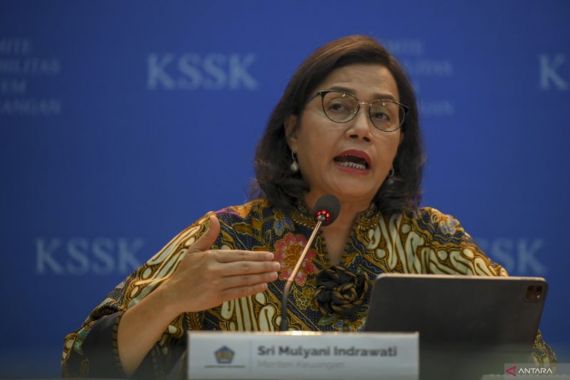The Indonesian government’s approach to managing its financial position has sparked widespread discussion among economists and policy experts. The current Indonesia fiscal strategy has been described by some as a tactical response to immediate economic pressures, while others view it as a pragmatic path toward long-term stability. As Indonesia continues to navigate global economic uncertainty, the question remains whether these measures are short-term fixes or components of a cohesive, sustainable policy framework.
This debate is unfolding amid rising expenditures, a need to maintain growth momentum, and the challenge of reducing fiscal risks without stifling economic recovery. The national budget plays a pivotal role in supporting key sectors such as infrastructure, healthcare, and social assistance programs. Therefore, decisions surrounding fiscal policies and strategies carry significant implications for businesses, investors, and citizens alike.
Current Indonesia Fiscal Strategy And Its Rationale
The Indonesia fiscal strategy is focused on maintaining economic resilience while addressing budget constraints. Government spending continues to prioritize programs that enhance social welfare, boost infrastructure development, and stimulate economic recovery following recent global shocks.
Addressing Budget Deficits
One of the central challenges of the Indonesia fiscal strategy is managing the national budget deficit. Increased spending during economic crises and the expansion of social programs have placed pressure on public finances. The government has sought to balance this through a combination of spending cuts in non-priority areas and revenue enhancement measures, including tax reforms and improved state-owned enterprise dividends.
Debt Management And Sustainability
Indonesia’s public debt levels remain relatively moderate compared to many developing economies, but they have increased in recent years. The Indonesia fiscal strategy emphasizes cautious borrowing to finance strategic projects while avoiding excessive debt accumulation that could undermine investor confidence. This is particularly important in the context of global interest rate fluctuations, which can impact Indonesia’s debt servicing costs.
Stimulating Investment And Growth
Another component of the Indonesia fiscal strategy involves creating a conducive environment for both domestic and foreign investment. Through targeted incentives, infrastructure spending, and streamlined business regulations, the government aims to strengthen Indonesia’s position as a regional economic hub. This aligns with long-term development plans to boost productivity and diversify economic output beyond traditional sectors.
Tactical Versus Pragmatic Policy Debate
The implementation of the Indonesia fiscal strategy has sparked debate about whether the government is being reactive or forward-looking.
Tactical Approach Critics
Critics argue that some of the measures, such as temporary subsidies and short-term spending increases, may be tactical rather than strategic. They warn that these policies could lead to fiscal imbalances if not carefully managed, especially given uncertainties in global commodity markets and exchange rate volatility. From this perspective, the focus on immediate relief efforts could overshadow structural reforms needed for long-term fiscal health.
Pragmatic Approach Supporters
Supporters of the current approach view the Indonesia fiscal strategy as pragmatic and necessary given current economic conditions. They emphasize that fiscal flexibility allows the government to respond effectively to external shocks, such as global supply chain disruptions and geopolitical tensions. For example, increased infrastructure spending can create jobs and stimulate domestic demand, while targeted subsidies can protect vulnerable populations from economic hardship.
Balancing Act
The reality likely lies somewhere in between. Effective fiscal strategy often requires balancing short-term tactical measures with longer-term structural reforms. For Indonesia, this means ensuring that immediate fiscal interventions do not compromise future fiscal sustainability.
Long-Term Implications For Indonesia’s Economy
The debate over the Indonesia fiscal strategy has broader implications for the country’s economic trajectory. Decisions made today will influence investment trends, social welfare outcomes, and Indonesia’s ability to withstand future economic shocks.
Infrastructure And Digital Transformation
Sustained investment in infrastructure and digital transformation is a cornerstone of Indonesia’s growth strategy. These initiatives are expected to enhance productivity, improve connectivity, and attract foreign investment. If managed effectively, the Indonesia fiscal strategy could accelerate progress toward these goals while also enhancing Indonesia’s competitiveness in global markets.
Social Welfare And Human Capital
Fiscal policies that strengthen healthcare, education, and social protection systems contribute to building human capital, which is critical for long-term growth. The government’s continued commitment to social welfare spending indicates that the Indonesia fiscal strategy is not solely focused on economic indicators but also on improving overall quality of life for its citizens.
Risks And Uncertainties
However, challenges remain. Global economic uncertainty, climate-related risks, and evolving geopolitical dynamics all influence fiscal outcomes. Maintaining flexibility within the Indonesia fiscal strategy will be essential for managing these risks while pursuing sustainable growth objectives.
Conclusion
Indonesia’s fiscal policy approach is at the center of a key economic debate. The Indonesia fiscal strategy blends elements of tactical short-term measures and pragmatic long-term planning, reflecting the complexity of managing public finances in an unpredictable global environment. While some critics fear that tactical measures may delay structural reforms, others argue that flexibility is crucial to protect the economy and vulnerable groups during times of uncertainty.
Moving forward, ensuring fiscal discipline while promoting growth-oriented spending will be critical. The outcome of these strategies will determine whether Indonesia can maintain macroeconomic stability, attract investment, and deliver sustainable development in the years to come.
Read More






 Friday, 27-02-26
Friday, 27-02-26







